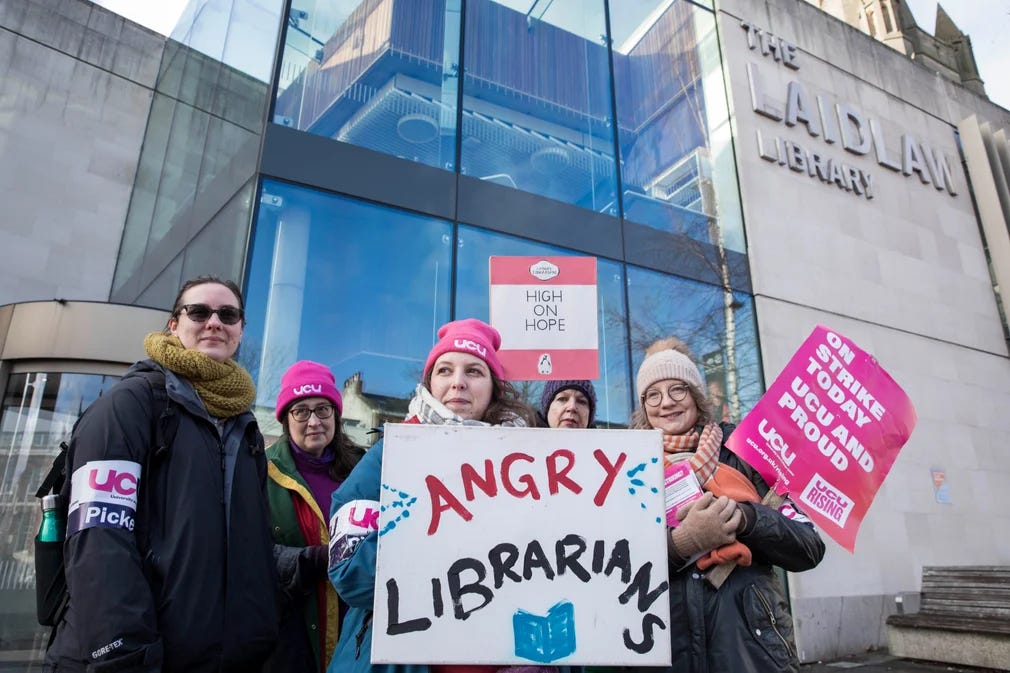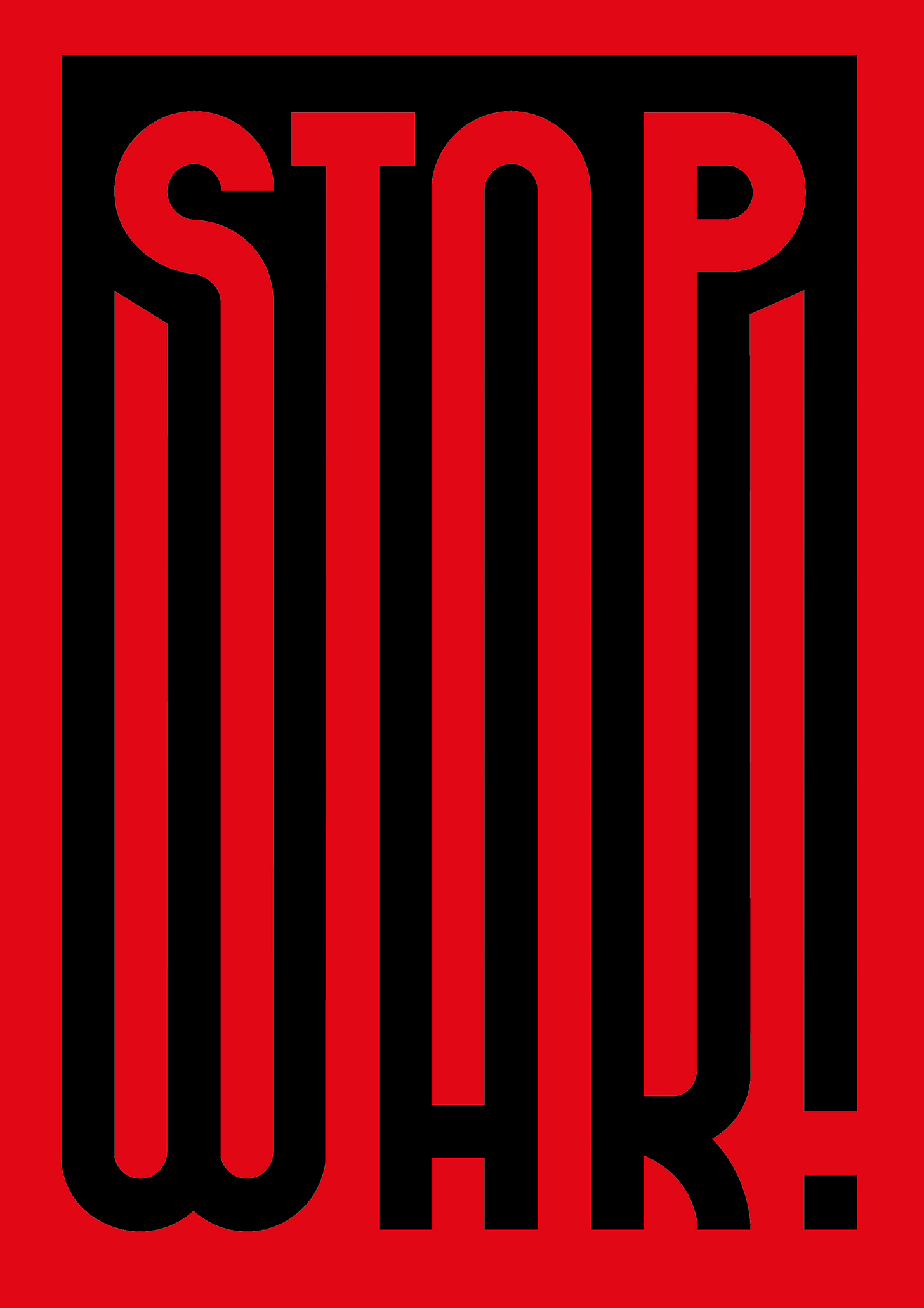What is socialism, why do we want it and how can we become better at arguing for it?
Part one of a two-part series by a long time socialist & reader of THE LEFT LANE.
Note to those reading via email: This article may exceed the length that can be sent by Substack. In which case, please click on the headline (“On creating and building…) and it will take you directly to the Substack article. Or click on “View Entire Message.”
+++++
Today’s THE LEFT LANE features a number of photos of working class and popular struggles over past decades. A member of Women Against Pit Closures, which played a central role in the Miners Strike of 1983 and 1984, is featured in the cover photo.
By John Tummon (GUEST POST)
Part One of a Two-Part series
The British Left is talking, once more, about forming a new political organisation to the Left of Labour. This article is a response to that debate, informed by a series of discussions within the Network of Independent Socialists (NOIS) that are due to continue and be broadened to more independent socialists, over the coming months. It is to these activists that this article is aimed.
The NOIS is motivated by an agreement to first identify the errors made by the Left in the past and talk through how to do things differently. The Left needs to make the most of the current opportunities and challenges presented by the evolving crisis of capitalism and its political structures.
After surveying different ideas about what socialism actually is or should be, this article in two parts will explain to readers how this question relates to various aspects of life and politics before drawing these together. Finally, it will offer some tentative conclusions.
But nearly 40 years of neoliberalism has gradually narrowed our political imagination for what is possible. It has led the British Left to seek unambitious or familiar forms of organisation, political programmes and visions of the future and how to get there. We have been made frightened of each other: “See it, Say it, Sorted” blares out its Orwellian message on every inter-city train journey in Britain.
We have to regain our political imagination and become a lot better than any of the Left-wing organisations set up since World War Two.
DIFFERENT VIEWS OF SOCIALISM
What does ‘socialism’ conjure up for you? Cold-war depictions of the former Soviet Union and Eastern Europe? The old ‘Clause IV’ of the Labour Party? The Atlee government of 1945 to 1951 and its Welfare State? Karl Marx’s view that socialism is what will inevitably replace capitalism?
Nearly all socialists believe that human beings are capable of both competitive and cooperative behaviour. People can be both selfish and selfless, but the balance between these two depends on how society is structured and the values and behaviours it encourages and discourages.
Marx and Engels predicted that replacing production for profit (capitalism) by production for need (socialism) would inevitably happen once capitalism was no longer able to operate profitably. Marx argued for a politics of “liberation” which goes beyond rights, or equal access to resources. “Liberation” suggested a transformation not simply of the circumstances of daily life, but of being and of relating to each other.
Clause IV of the Labour Party’s original constitution of 1918 defined socialism as a system that would secure, “for the workers by hand or by brain, the full fruits of their industry, and the most equitable distribution thereof that may be possible, upon the basis of the common ownership of the means of production, distribution, and exchange, and the best obtainable system of popular administration and control of each industry or service.” But the Labour Party dumped Clause IV in 1995 and, with some minor exceptions, has stopped talking about socialism altogether since Tony Blair became its leader.
The 17th century idea of “The Commonwealth”, it should be noted, was very similar to Clause IV. Common ownership of all wealth meant producing what we need to live decently and sharing it between us fairly.
Angry librarians in Leeds and teachers in London taking strike action in early 2023.
SOCIALIST DEMOCRACY IS A WORLD APART
Marx did not want to do away with a democratic republic as the system of government. His idea of democracy was, however, a world apart from the corrupt political system we live under now, a system seriously lacking in real democracy and is not accountable to the people and that mostly operates secretly, when it comes to really important issues, like war, treaties, and internal controls on freedom. The Bolsheviks did abolish the Russian Parliament soon after the Revolution of 1917 and we must not repeat that. Somewhat similarly in Germany, 15 years later, abolishing the national Parliament led to a dictatorship not of the people but of the controlling party.
The Soviet Union and Eastern Europe both had sham democracies, and when ordinary workers in East Germany, Hungary and Czechoslovakia rose up after the Second World War to demand something better, they were crushed by Soviet tanks. This caused socialists in the West to think again about the importance of democracy and freedom. I know I did.
There is no existing blueprint for what socialism is or what it should be. So a vision of it needs instead to be pieced together in a way that is suitable for where we are at in the 21st century.
FINDING PIECES OF THE SOCIALIST JIGSAW
In the early nineteenth century British labour movement – that is, before the setting up of 'proper' social democratic parties and bureaucratic trade unions - ideas derived from Chartism and ‘Utopian Socialism’, and about communitarianism, co-operation, self-education and self-management arose from ‘ordinary people’.
The Suffragettes led the campaign for votes for women 100 years ago.
These early socialists also often preached and practiced the liberation of women and a radical gender politics that would often not be matched by the rest of the western Left until the late twentieth century. They designed socialist communities and housing for working people. They did the hard thinking about what socialism should be like and tried to start creating examples of it in the here and now, and how to attract others to their ideas.
These ideas have been largely ignored by most histories. They were feared by the rulers of the time and they showed the kind of imagination we need to recover. We know far more and need to focus far more about the history of trade unions and the formation of the Labour Party.
Between 1917 and 1923 council republics were the aim of a number of socialists in Central and Eastern Europe. They advocated a more radical and more direct democracy which often went hand in hand with demands for greater control over MPs. They championed referenda, as well as suggestions for rotating leadership, to prevent the emergence of semi-permanent leaders.
Some of these socialists came together in the International Workers' Union of Socialist Parties, also known as 'Vienna Union'. Throughout the 1920s and 1930s a string of independent socialists of this type challenged both communist dogmatism and social democratic reformism.
DEMOCRACY IS FAR MORE THAN STRUCTURES
These socialists saw democracy not just as a set of political structures and processes. Rather, it was a principle and a way of decision-making, both in how they organised themselves to get rid of capitalism, and in building a socialist society once capitalism was history. They wanted a democracy which balanced out conflicting interests and which was envisaged as operating at all levels of society.
From the Liverpool Dockers Strike, 1995 by David Sinclair.
As well as political power these socialists thought about ‘social power’ within political structures, including independent organisations of the working class and oppressed groups. Democratic processes, they argued, needed to be adopted in all power relationships: in the family, the workplace, in neighbourhood groups and even in the army or civil defence and security forces. Ideas about industrial democracy, workers' control, socialisation and workers' self-management were particularly prominent. Nowadays, a lot of social power has been lost or badly eroded and needs to be re-built. Moreover, once people have it and have their capacity and agency back, it must be valued, nurtured, trusted and shared.
We might call this, bottom-up democracy, with origins going back to the 17th century Levellers and Diggers, to the Peasant Revolts in England and Germany, and the Jack Cade Rebellion of 1450. Each of these demonstrated popular rejection of monarchical and all similar forms of rule over the heads of the people by an unaccountable leader or leadership group.
Independent socialists believed that people had to practice democracy on a daily basis rather than delegate responsibility for decision-making to elected representatives or a party vanguard. They felt that people had to be encouraged to take control of their lives in a more direct way. They set up local direct democracies to demonstrate this and to take people through the experience.
These ideas re-surfaced again in 1968 when anti-authoritarianism and a new democratic “politics of the everyday” declared that ‘the personal is political’. These ideas reflected the alienation felt by a new “Baby Boom” generation from the consumerism that had enveloped Western society over the past decades. They also wanted the mass of people to decide how to run public services and industries, and not be on the receiving end of managers appointed by government, which was Stalin’s model and one that the Atlee government recreated.
Quality of life, the young radicals of 1968 argued, could not be measured by maximising economic growth levels or by considering how much people consumed. Rather it could be acquired by a more liberating and satisfying way of living than working for wages from employers who were mainly interesting in squeezing them to maximise profits. They stressed the need to develop and share the skills and imagination of everyone, both in the way we build together now and in a future society.
But, in the event, the 1970s crisis in capitalism buried these ideas, for the time being; the Atlee government had come closest to changing capitalism without replacing it, with its Welfare State, Council Housing programme, and the nationalisation of the most important parts of the economy. But, after the explosions in the price of oil in the 1970s, Reagan and Thatcher copied Pinochet’s Chile and adopted a neoliberal capitalist economic system that obliterated all that Atlee had built up. They let greed rip as if it was a virtue.
Even so, the Green movement picked up the criticisms of communist and social democratic notions of progress that had been voiced by left-wing dissenters in the 1950s and 1960s. Nowadays, it has become clear to more and more people that the ability of our planet to sustain us will suffer if we don’t abandon the illusion of ‘growth’. This has to start by relentlessly challenging the arguments for growth put forward by Keir Starmer and Rachel Reeves.
SYSTEM IS CORRUPT AND SECRETIVE
It is unlikely that it will be possible any longer - let alone sufficient - to get radical reforms out of our current political system and bring in measures that could restore the mixed economy and welfare state of 1945 – 1973. Why? Because this system has become so corrupt, undemocratic, unaccountable and secretive that we would be wasting our time and just get trapped and manoeuvred about by its blind alleys. What we want - and what more and more people want - is far more than just to elect a government in the belief that it will manage capitalism more humanely, but change nothing fundamental.
We are still waiting for Marx’s predicted fall of capitalism to be fulfilled, although Marx did say it had to be pushed out of the way, and wouldn’t automatically exit from history. Right now, capitalism is facing a number of crises simultaneously, so how can we push it out of the way?
This photo is from the “Block Telethon” protests of the early 1990s when disabled people launched a successful protest against a charity fundraiser on television. The programme portrayed disabled people as people to feel sorry for… and hence the campaign slogan “Piss on Pity.” For more on the photo, see HERE and for more on the coverall impact of the campaign, which forced ITV to scrap the telethon, see HERE.
+++++++++
John Tummon from the Greater Manchester area is a long-time political activist on the left….and also a reader of THE LEFT LANE.
++++++
FOLLOW UP
1. Do you have a different view of what socialism is all about? Put it in the comments section below.
2. Part Two of this series will come out in THE LEFT LANE within the next week.
3. Here is the email address of the Network of Independent Socialists if you want to get in touch:
networkofindependentsocialists@gmail.com
++++++++++++++
CHECK THIS OUT
Graphic reproduced with permission of Polish artist Barbara Galińska
“A survey conducted by rights groups, including the War Child Alliance, found that 96 percent of children in Gaza feel their death is imminent while 49 percent said they wished to die.”
On the overnight news of 16 December on: https://www.aljazeera.com/
++++++
Edited by Alan Story, THE LEFT LANE is a reader-supported publication. To receive new posts and support our work, consider becoming a free or paid subscriber: http://theleftlane2024.substack.com/subscribe
You can reach us at: theleftlanepolitics@gmail.com
You can read all previous columns of THE LEFT LANE here
Follow us on our new THE LEFT LANE Instagram









Nicole raises some great issues, especially AI: how to synthesise all these into a strategy is a mammoth undertaking...worth doing though
A good article full of energy, enthusiasm and optimism. Such ideas can develop the virtues of altruism, care and kindness present in each of us to help build a better, sharing society based not on greed, tribalism and control, but on justice, peace and environmental respect.